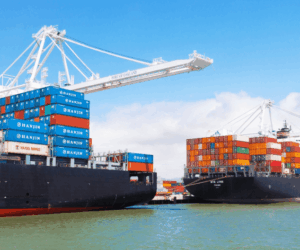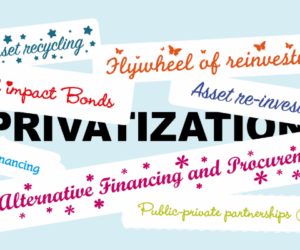
Nigeria’s proposed 15 per cent fuel levy is thus not inherently illegitimate. It could, in principle, serve as a bridge from a broken import-and-subsidy model towards a more resilient, domestically rooted energy economy. But in a country where nearly half the population lives in poverty, where food and transport costs have already exploded, and where the climate clock is ticking loudly, the design details are everything.
When President Bola Tinubu approved a 15 per cent import duty on petrol and diesel in October, his advisers framed it as a strategic move: protect billions of dollars of new refining investment, conserve foreign exchange, and finally end Nigeria’s dependence on imported fuel. Though the decision was suspended the following month, it is important to critique such government strategic policies to ensure further decisions made serve to protect both the people and the planet.
On its own terms, an import duty is a textbook industrial-policy intervention. Yet, viewed through the lens of contemporary energy policy, social justice, and international economic law, the levy looks far more ambivalent. The real question is not whether Nigeria may adopt such a tariff under World Trade Organization (WTO) rules, as it almost certainly can, but whether it is using its policy space in a way that is socially defensible, climate aware, and competitively disciplined.
The economic logic is straightforward. For decades, Africa’s largest oil producer exported crude and imported refined products, bleeding foreign exchange and living at the mercy of distant refineries and opaque trading chains. The completion of the 650,000 barrels-per-day Dangote refinery, which is now supplying over 45 million litres of petrol and 25 million litres of diesel daily, was meant to turn that page. Yet, cheap imported fuel, sometimes of dubious quality, has continued to undercut local output. The new duty is thus a border price-support instrument. It makes imports more expensive and creates room for domestic refiners to recover costs and plan long-term investments.
From a narrow industrial-policy and energy-security standpoint, then, the measure is intelligible. It is the kind of muscular state intervention we have seen elsewhere, as countries scramble to secure strategic capacity; not unlike the subsidy-laden push for clean energy manufacturing in the United States and the European Union.
However, the social and climate ledger looks much more troubling. Nigeria’s recent reforms – fuel subsidy removal, exchange rate unification, tax changes – have already imposed sharp short-term pain. The World Bank reports that over 46 per cent of Nigerians live below the poverty line, with poor households spending up to 70 per cent of their income on food, in a context of surging inflation. A separate World Bank brief estimates that the share of Nigerians in extreme poverty rose to 41.8 per cent and around 129 million people – roughly 60 per cent of the population – now live below the national poverty line, after a sequence of price shocks linked to the reforms.
On top of this fragility, a 15 per cent fuel import duty is not a technocratic footnote. Nigerian labour unions have warned that the levy may backfire, driving petrol prices above ₦1,000 per litre, encouraging price manipulation, and deepening hardship for workers who are already struggling with transport and food costs. Civil society voices have called for suspension of the levy, until credible safeguards are in place.
In other words, this is a highly regressive intervention. Fuel price increases cascade through the entire economy: transport, food, small-scale manufacturing, and public services. For the middle classes, it is painful; for the working poor and informal workers, it is existential.
From the standpoint of contemporary energy and climate policy, the levy also matters. The 2023 Synthesis Report of the IPCC – Intergovernmental Panel on Climate Change – underscores that aligning fiscal and financial flows with rapid decarbonisation is urgent, and that current public and private finance still overwhelmingly favours fossil fuels over climate solutions. The International Monetary Fund (IMF) and World Bank estimate that fossil fuel and other environmentally harmful subsidies – explicit and implicit – reached around $7 trillion in 2022, and have urged governments to repurpose these fiscal flows towards clean energy and social protection.
…Nigeria’s levy raises three hard questions: Does it genuinely enhance sustainability, or merely shifts rents from one set of actors to another? Does it entrench or discipline market power in the fuel sector? Does it protect the poor and vulnerable, or ask them to shoulder the bulk of the adjustment?
Nigeria’s levy runs against the grain of this emerging best practice in two ways. First, it reinforces, rather than unwinds, fossil fuel dependence by shoring up the economics of petrol and diesel refining without a parallel, time-bound plan to reduce demand. Second, it raises revenue in a way that hits those least able to pay, without clear, ring-fenced mechanisms to recycle the proceeds into targeted cash transfers, public transport, or clean energy investments for the poor.
If this is a “transition” measure, the transition is not yet visible. While some argue that Nigeria’s policy space on this score may be restricted by international trade law, or that bolder climate-aligned choices would invite WTO litigation, given extant trade commitments, the reality is that trade rules are not the main constraint here.
WTO tariff data show that Nigeria’s simple average final bound tariff on non-agricultural goods is about 49.6 per cent, while its current most-favoured-nation (MFN) applied average is around 11.4 per cent. A 15 per cent tariff on refined fuels therefore sits comfortably below the overall bound average; so long as the duty is scheduled as an ordinary customs tariff, applied on a MFN basis, and not layered as an unbound para-tariff, it is unlikely to breach WTO commitments.
Under the African Continental Free Trade Area (AfCFTA), members have agreed to liberalise 90 per cent of tariff lines, with 7 per cent designated as “sensitive” products and 3 per cent excluded from liberalisation. Petroleum products often sit in the sensitive or excluded bucket in African tariff offers. Legally, Nigeria has considerable latitude to treat refined fuels as sensitive, while domestic refining scales up.
The point, then, is not that trade law forces Nigeria to maintain low tariffs on fuel. It is that trade law leaves Nigeria with discretion, and thus responsibility.
This is precisely the terrain mapped by Elena Cima and Daniel Esty in their seminal work, Making International Trade Work for Sustainable Development: Toward a New WTO Framework for Subsidies, which calls for trade disciplines that distinguish sustainability-enhancing from sustainability-diminishing measures and ensure that support does not become pure protectionism or create unaccountable market-dominant entities. And it is the spirit of the Villars Framework for a Sustainable Global Trade System, which urges that sustainable development be treated as the core mission of the trading system, not an afterthought.
Seen in that light, Nigeria’s levy raises three hard questions: Does it genuinely enhance sustainability, or merely shifts rents from one set of actors to another? Does it entrench or discipline market power in the fuel sector? Does it protect the poor and vulnerable, or ask them to shoulder the bulk of the adjustment?
On today’s evidence, the answers are, at best, unsettled.
Trade law gives Nigeria room to move. The Cima–Esty and Villars reform agendas remind us that the real test is whether states use that room to advance sustainability, protect the vulnerable, and discipline market power. On that score, a fuel levy for the country remains an open case; and the burden of proof lies squarely with those who insist that this is a “bridge, not a burden.”
If Nigeria is to align this policy with its climate obligations, social realities and regional commitments, it must recast the levy as a transitional, climate-aware and justice-centred measure, not a blank cheque for fossil-fuel refining. That means four design choices.
First, time-bound infant-industry protection. The government should set out, in legislation or clear policy, a sunset schedule for the 15 per cent levy, linked to concrete benchmarks: the ramp-up of domestic refining capacity, demonstrated supply reliability, and effective enforcement of the Petroleum Industry Act. This would signal that protection is temporary and performance-based, not an open-ended wall around one or two mega-refineries.
Second, social protection and fairness. A portion of the additional revenue should be explicitly earmarked for: targeted cash transfers to low income households, building on the World Bank–supported social-protection programmes already in place; support for urban and inter-city public transport (including compressed natural gas and electric buses) to lower households’ exposure to high petrol prices; and decentralised clean energy solutions – solar mini-grids, clean cooking, and efficiency measures – that reduce long-run dependence on petrol and diesel. Without such recycling, the levy will be yet another regressive tax on the poor in a country where poverty and food insecurity are already acute.
Third, competition and anti-monopoly guarantees. There are concerns from fuel traders that the measure, if poorly managed, could entrench a de facto monopoly, given the perception that it has been designed to support local refineries like Dangote’s. Nigeria’s competition authorities and energy regulators must therefore treat market structure as a core risk, not a side issue: enforce transparent pricing rules and non-discriminatory access to pipelines, depots and retail networks; maintain a diversified pool of importers and refiners, at least during the transitional period; and publish regular market-monitoring reports, so that citizens can see whether the levy is being used to hold prices down or quietly raise margins. Cima and Esty’s sustainability-oriented subsidy test – that public support must not be a disguised trade barrier or a tool for creating unaccountable, market-dominant entities – is directly relevant here.
Fourth, integration with AfCFTA’s long-term vision. Nigeria should situate the levy within an explicit AfCFTA strategy: a roadmap for how, and when, refined fuels will move from the “sensitive” basket towards a more open, competitive African energy market. The AfCFTA was conceived to boost intra-African trade and industrialisation, not to ossify national monopolies. A protected Nigerian refining hub could either anchor a regional supply system or stifle cross-border competition and innovation. The difference will be made by rules, not rhetoric.
Nigeria’s proposed 15 per cent fuel levy is thus not inherently illegitimate. It could, in principle, serve as a bridge from a broken import-and-subsidy model towards a more resilient, domestically rooted energy economy. But in a country where nearly half the population lives in poverty, where food and transport costs have already exploded, and where the climate clock is ticking loudly, the design details are everything.
Trade law gives Nigeria room to move. The Cima–Esty and Villars reform agendas remind us that the real test is whether states use that room to advance sustainability, protect the vulnerable, and discipline market power. On that score, a fuel levy for the country remains an open case; and the burden of proof lies squarely with those who insist that this is a “bridge, not a burden.”
Ese Owie is the chief executive officer of the University of Oxford Climate Alumni Network. He currently serves as professor of International Trade Law, International Relations, and Climate Diplomacy and Policy at EUCLID (Pôle Universitaire Euclide /Euclid University) and is a Visiting Research Fellow at the University of Essex Law School.












